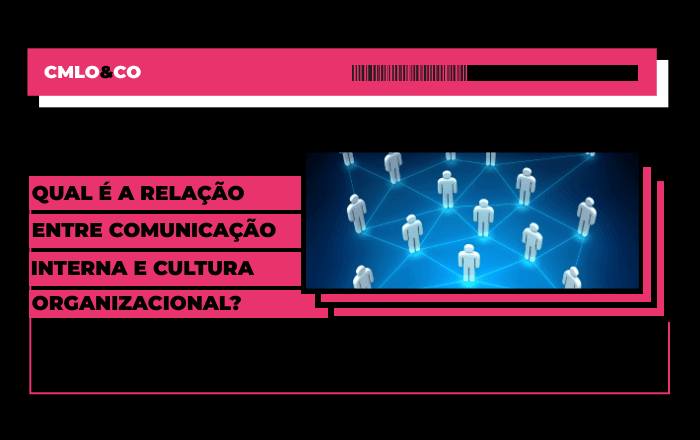In the current political scenario, the political marketing has become an indispensable tool for candidates, parties and organizations seeking to win over voters, strengthen their image and convey their messages effectively.

But what exactly does this concept mean and why is it so important in today's political environment? In this article, you'll learn about the concept of political marketingHow it works, what its role is and the importance of this strategy for both candidates and society. Follow along!
What is Political Marketing?
In principle, it is a branch of marketing dedicated to creating, promoting and managing the public image of candidates, parties and political organizations.
Political marketing is used by candidates, parties and interest groups to form, communicate and promote ideas, values and policies. Its aim is to influence public opinion, win over the electorate and mobilize the support needed to achieve the desired political objectives.
Types of Political Marketing
Political marketing is basically divided into three types:
Election marketing
Election marketing focuses on promoting candidates during election campaigns. It involves communication strategies and advertising to present the candidate to the electorate, highlight their proposals and persuade voters to support them at the ballot box.
Post-election marketing
Post-election marketing is carried out after the elections and aims to maintain voter engagement, strengthen the image of the elected candidate and promote actions and public policies that reinforce the politician's trust and credibility with the population.
Party marketing
Party marketing focuses on promoting and strengthening a political party as a whole. It involves communication strategies and branding to consolidate the party's identity, values and proposals, attracting and mobilizing members, supporters and voters.
How does political marketing work?
Political marketing works through a set of integrated strategies and actions that seek to build, strengthen and protect the public image of candidates, parties and political organizations. It involves several stages, including:
- Research and analysis: understanding the profile of the electorate, identifying relevant issues and analyzing political competition;
- Strategic planning: defining communication and advertising objectives, goals and strategies;
- Implementing actions: running advertising campaigns, producing content, holding events and mobilizing voters;
- Monitoring and evaluation: tracking the performance of strategies, analyzing results and making the necessary adjustments to optimize the impact of actions.
The role of political marketing
Political marketing plays a crucial role in today's political landscape, acting as a strategic bridge between candidates, parties and the electorate.
As well as being a promotional and communication tool, it performs deeper and broader functions that have a significant impact on society as a whole. See:
Building and strengthening public image
One of the main functions of political marketing is to build and strengthen the public image of candidates and parties.
Through branding, communication and advertising strategies, this type of marketing seeks to create a positive, trustworthy and attractive image, highlighting the qualities, proposals and values of the candidate or party.
Engaging and connecting with the electorate
Political marketing is responsible for engaging and connecting with the electorate in a direct and meaningful way.
The strategy seeks to understand and address the needs, interests and concerns of the population, promoting an open and constructive dialog with voters. Effective voter engagement is key to mobilizing the necessary support and winning over voters.
Transmission of messages and political proposals
Political marketing plays a vital role in the clear, precise and effective transmission of political messages, proposals and ideas. It adapts political messages to the needs and expectations of the electorate, making them accessible, understandable and relevant to the general public.
Effective communication of political proposals and ideas is essential for influencing public opinion and mobilizing the support needed to achieve the desired political objectives.
Contributes to the country's democracy
In addition to its specific functions in the political arena, political marketing has significant relevance for society as a whole.
After all, it contributes to the formation of a more informed, transparent and participatory democracy, promoting political debate, clarifying the positions of candidates and parties and stimulating citizens' civic involvement.
It also plays an important role in the political education of the population, helping voters to understand the political process, the issues at stake and the impact of their choices on political decisions and the future of the country.
Furthermore, political marketing is fundamental to building and maintaining a healthy and democratic political culture, encouraging fair electoral competition, alternation of power and respect for democratic rules and principles.

Importance of Political Marketing
Political marketing is important for many reasons:
- Electoral competitiveness: in an increasingly competitive political landscape, the approach allows candidates and parties to stand out and win the support they need to achieve electoral success.
- Connection with the electorate: enables a closer and more direct connection with the electorate, allowing candidates and parties to understand and respond to the needs, interests and concerns of the population.
- Credibility and trust: a well-designed strategy helps to build a solid, reliable and transparent image, increasing the electorate's credibility and trust in the candidate or party.
Best Political Marketing Strategies
Some of the best strategies include:
- Political branding: developing a solid and consistent visual and verbal identity that conveys the values, proposals and messages of the candidate or party;
- Content production: creation of relevant, informative and engaging content for different communication channels, such as social networks, the official website and printed material;
- Social media managementStrategic use of social media platforms to reach, engage and mobilize the electorate, promoting meaningful interactions and dialogues;
- Advertising campaigns: developing and broadcasting creative and impactful advertising campaigns that highlight the proposals, qualities and differentials of the candidate or party;
- Public relations and press officeestablishing positive relationships with the press, conducting interviews and issuing releases and notes to promote a positive and constructive image.
Differences between political marketing and electoral advertising
Both concepts are vital components of political communication, but they differ significantly in their objectives and approaches, their goals and methods of execution.
Political marketing is a comprehensive strategy that involves creating and managing a positive public image for politicians or parties, and effectively communicating their messages and values over time. It is focused on building lasting relationships with the electorate and is not limited to election periods.
On the other hand, propaganda is a more direct and immediate form of communication, generally used during election campaigns with the specific aim of promoting a candidate, party or ideology in order to win votes.
Political marketing is an ongoing process that can include market researchIn addition, the campaign is based on data analysis, branding, public relations and other communication tactics to maintain a constant presence in the minds of voters.
Advertising, on the other hand, although it can be part of political marketing, is typically a short-term tool used to influence public opinion at a critical moment, such as in the weeks leading up to an election.
In short, while political marketing is a strategic, long-term approach to building and maintaining a political image, advertising is a short-term tactic focused on immediate results, often associated with specific electoral campaigns.
The importance of a professional marketing and advertising agency
As we have presented in this article, political marketing is a powerful and indispensable tool for candidates, parties and political organizations seeking to stand out in an increasingly competitive and dynamic political landscape.
Through well-designed strategies and integrated actions, the approach enables the clear and effective transmission of messages, proposals and political ideas, adapting to the needs and expectations of the electorate and promoting a solid, reliable and transparent image.
In order to achieve effective and impactful results in your political marketing strategies, it is essential to have the support of a professional marketing and advertising agency.
With the support of specialized professionals and customized solutions, CMLO&CO is the ideal partner for candidates and parties looking to win over voters, strengthen their image and achieve success at the ballot box. Talk to our marketing and advertising experts.







